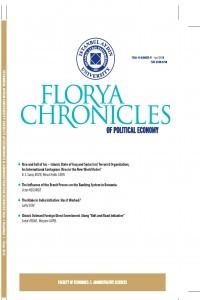Development as Systems: Systems Frameworks, Sub-Saharan African Development, and Health Systems
Development as Systems: Systems Frameworks, Sub-Saharan African Development, and Health Systems
This article provides an introduction to and review of systems frameworks relevant to Sub-Saharan African (SSA) development. These systems frameworks – presented here in the sub-categories of analytical, policy, and programmatic frameworks – are important to development given their conceptualization of systems and emphasis on the complex interactions of the networks and network members that compose those systems. Because systems are context-specific, this article offers the example of health systems and health systems strengthening as the SSA development issue receiving the most systems-oriented attention. Of importance to SSA health systems and systems strengthening is the impact of the HIV/AIDS, SARS, and Ebola crises on the development of the global health system as well as the broad application of systems frameworks in SSA health-based development interventions
Keywords:
Systems Frameworks, Health Systems Strengthening, Development, Sub-Saharan Africa, Networks Ebola,
___
- Adam, T. (2014). Advancing the application of health systems thinking in health. Health Research Policy and Systems, 12(50), 1-5. doi: 10.1186/1478-4505-12-50.
- Alliance for Health Policy and Systems Research and WHO. (2009). Systems thinking for health systems strengthening. France: WHO Press.
- Chance Ebola can be defeated by 2015 WHO chief tells security council. (2015, August 13). In United Nations. Retrieved on [January, 2016] from http://www.un.org/press/en/2015/sc12006.doc.htm.
- Ebola virus disease: Fact sheet 103. (2015, April). In World Health Organization. Retrieved on [January, 2016] from http://www.who.int/mediacentre/factsheets/fs103/en/.
- Fidler, D. P. (2004). SARS, governance, and the globalization of disease. New York: Palgrave Macmillan.
- Finnemore, M., & Sikkink, K. (1998). International norm dynamics and political change. International Organization, 52(4), 887-917.
- Holland, J. H. (1995). Hidden order: How adaptation builds complexity. New York: Addison-Wesley Publishing Company, Inc.
- Jervis, R. (1997). Systems effects: Complexity in political and social life. Princeton, N.J.:Princeton University Press.
- Keck, M. E., & Sikkink, K. (1999). Transnational advocacy networks in international and regional politics. Oxford: UNESCO by Blackwell Publishers.
- Kieny, M. P. (2014, December 12). Ebola and health systems: Now is the time for change. In World Health Organization. Retrieved on [January 2016] from http://www.who.int/mediacentre/commentaries/health- systems-ebola/en/.
- One year on: AfDB’s support of Ebola-affected countries continues. (2015, March 27). In African Development Bank Group. Retrieved on [date needed] from http://www.afdb.org/en/news-and-events/article/one-year-on- afdbs-support-of-ebola-affected-countries-continues-14103/.
- Schmidt, V. A. (2005, June). The role of public discourse in European social democratic reform projects. European Integration Online Papers, 9(8), 1-28. [doi needed]. http://www.undp.org/content/dam/undp/library/crisis%20preve ntion/UNDP_RBA_PolicyNoteonEbolaVol1No3_ENG_ 31Octo2014.pdf.
- United Kingdom House of Commons International Development Committee. (2014, September 2). Strengthening health systems in developing countries: Fifth report of session 2014-2015. London: Stationary Office Limited.
- Vaughan, M. (1991). Curing their ills: Colonial power and African illness. Stanford, CA:Stanford University Press.
- World Health Organization. (2007). Everybody’s business: Strengthening health systems to improve health outcomes. Geneva: WHO.
- World Health Organization. (2012). Health systems in Africa: Community perceptions and perspectives. Brazzaville, Republic of the Congo: WHO Regional Office for Africa.
- The Economic Stabilization and Recovery Plan. (2015, April). Republic of Liberia: Monrovia. UNDP. (2014, October 24). Ebola virus disease outbreak (EVD) is overstressing the fiscal capacity of governments in Guinea, Liberia, and Sierra Leone. UNDP Africa Policy Note, 1(3), 1-7. Retrieved on [January 2016] from http://www.undp.org/content/dam/undp/library/crisis%20preve ntion/UNDP_RBA_PolicyNoteonEbolaVol1No3_ENG_ 31Octo2014.pdf.
- United Kingdom House of Commons International Development Committee. (2014, September 2). Strengthening health systems in developing countries: Fifth report of session 2014-2015. London: Stationary Office Limited.
- Vaughan, M. (1991). Curing their ills: Colonial power and African illness. Stanford, CA:Stanford University Press.
- World Health Organization. (2007). Everybody’s business: Strengthening health systems to improve health outcomes. Geneva: WHO.
- World Health Organization. (2012). Health systems in Africa: Community perceptions and perspectives. Brazzaville, Republic of the Congo: WHO Regional Office for Africa.
- ISSN: 2149-5750
- Yayın Aralığı: Yılda 2 Sayı
- Başlangıç: 2015
- Yayıncı: İstanbul Aydın Üniversitesi
Sayıdaki Diğer Makaleler
Political Violence and Terrorism: Insight Into Niger Delta Militancy and Boko Haram
Özüm Sezin UZUN, Yusuf Saheed ADEGBOYEGA
Turkey’s Education Diplomacy With Africa
Relationship Between Political Instability & Growth In Some Selected Mena Countries
Sanal Organizasyonların Yönetim Fonksiyonları Açısından Geleneksel Organizasyonlardan Farklılıkları
Lord Curzon and the Use of Secret Intelligence at the Lausanne Conference: 1922-1923
Food Security And Drawbacks Of Neo-Liberal Food Policies
Economic Development In Africa: Salient Trends and Priorities
Psikolojik Sermaye Kavramı Üzerine Bir İnceleme
Development as Systems: Systems Frameworks, Sub-Saharan African Development, and Health Systems
